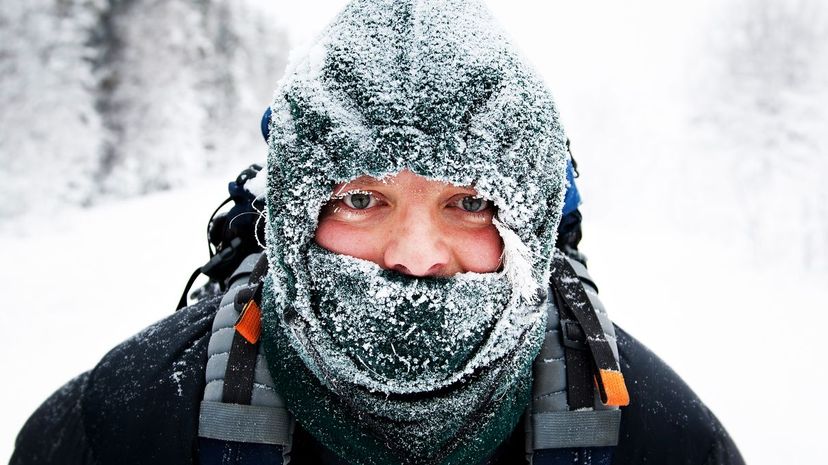
About This Quiz
Canada is a diverse country in just about every way possible. Its multiple climates range from west coast rainforests to sprawling prairies as far as the eye can see to snow-covered tundras free from any signs of human civilization. The people who call Canada home have lived here for generations (or thousands of years), or they've just arrived - 20% of Canada's population is made up of recent immigrants. Canada's multi-party political system may seem confusing to outsiders, but here it makes sense to have more than two federal parties to vote for. Canada is a relatively young nation, and many of its most important historical events have happened within the last century and a half (although its history may seem longer, due to the country's deep ties to the British monarchy).
The questions in this quiz are themselves diverse, just like Canada and its inhabitants. It's time to think about all of the things that make Canada such a great nation, and some that show work needs to be done.
O Canada! Put on your Leafs hat, crank up that Neil Young and grab a Nanaimo bar to snack on. Now's your chance to show off what you really know about the Great White North!
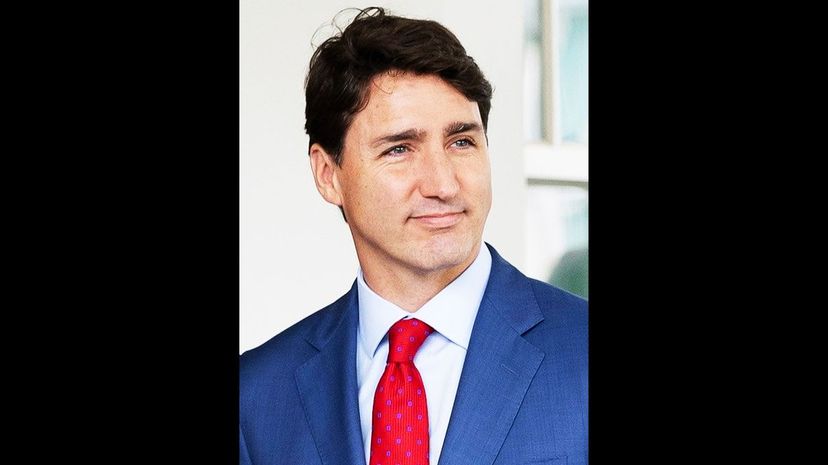
Leader of the Liberal Party, Prime Minister Justin Trudeau was elected into office in 2015. Prior to becoming prime minister, Trudeau worked as a drama teacher, club bouncer, snowboarding instructor and camp counsellor.
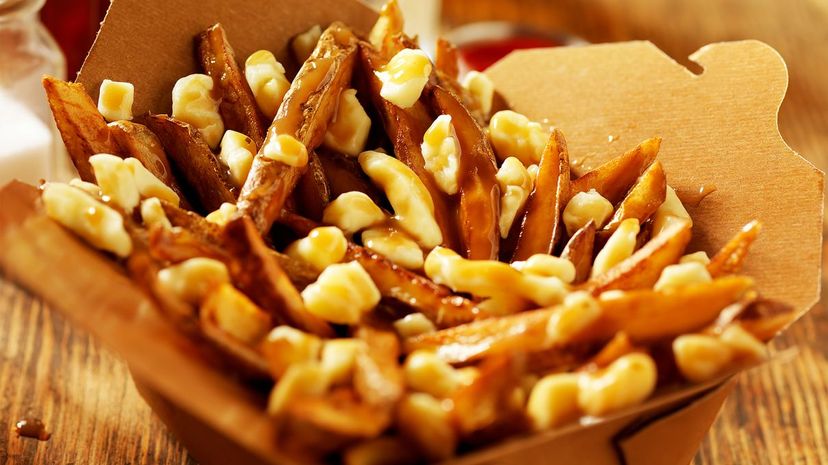
Invented in the 1950s, poutine is beloved all across Canada, especially in its home province of Quebec. Traditionally it's made with french fries, squeaky cheese curds and brown gravy. This gravy may be homemade, canned or from a powder - St-Hubert is a favourite brand.
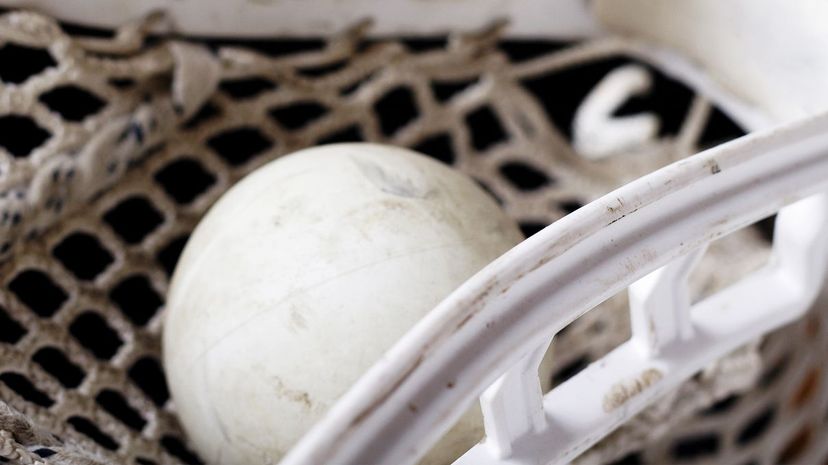
Lacrosse is the national summer sport of Canada, with hockey being the national winter sport. Despite the fact that Canada is so closely associated with ice hockey, lacrosse was the only national sport until 1994.
Advertisement
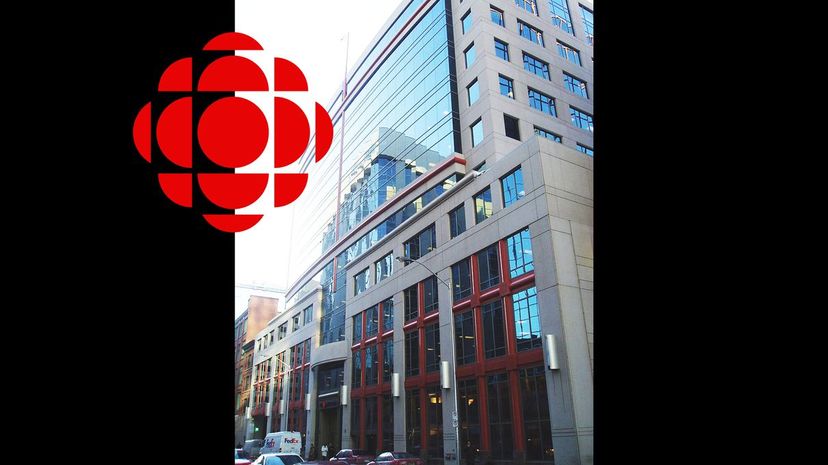
The CBC, or Canadian Broadcasting Corporation, is a federal Crown corporation, which means it's owned by the state. Founded in 1936, the CBC has both English and French divisions in radio and television, and it is a huge producer of Canadian content.
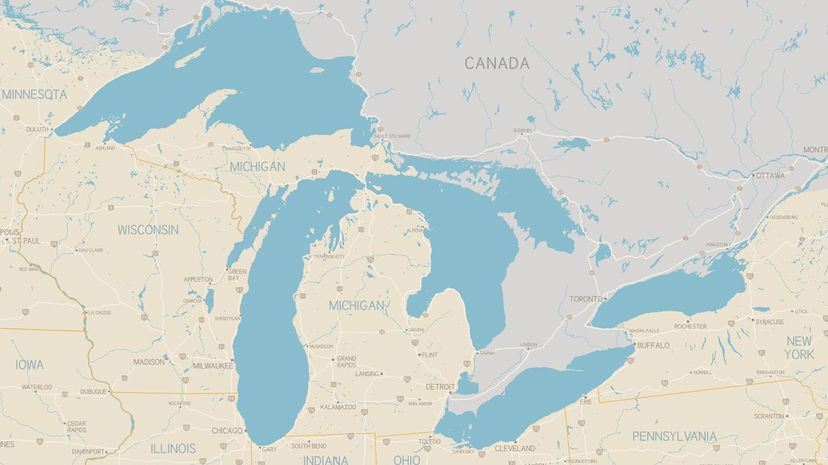
Not only is Lake Superior the largest of the Great Lakes, but it's also the second largest in the world by surface area, behind the Caspian Sea, and it's the largest freshwater lake measured by area. It's also the deepest and coldest of the Great Lakes, with its greatest depth measuring 406 metres and average depth measuring 147 metres.
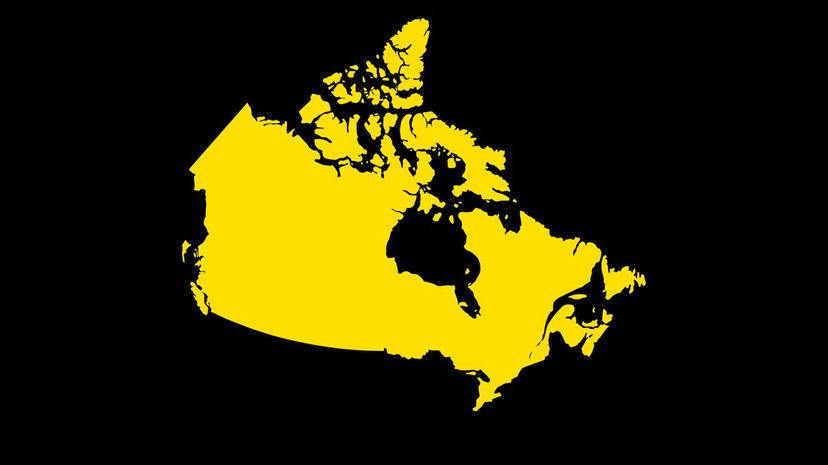
Canada has ten provinces: British Columbia, Alberta, Saskatchewan, Manitoba, Ontario, Quebec, Newfoundland and Labrador, New Brunswick, Nova Scotia and Prince Edward Island, listed from west coast to east coast.
Advertisement
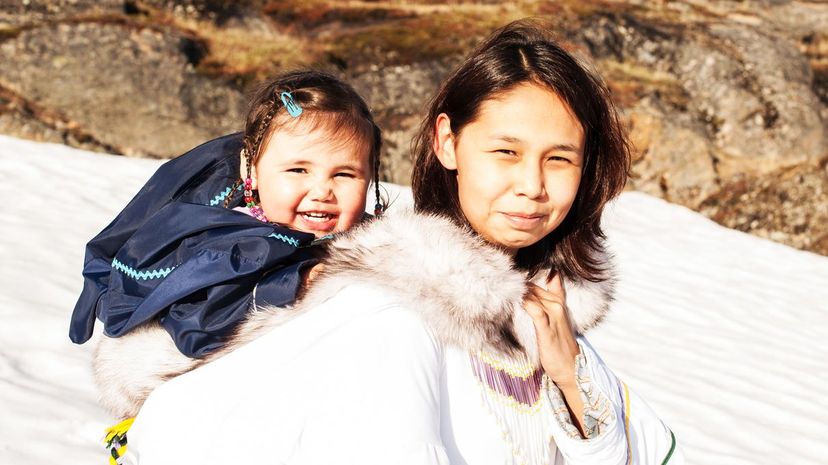
Canada has three territories: Yukon Territory, Northwest Territories and Nunavut. Separating from the Northwest Territories on April 1, 1999, snowy Nunavut is Canada's newest territory. Its capital is Iqaluit, which means "place of many fish" in Inuktitut.
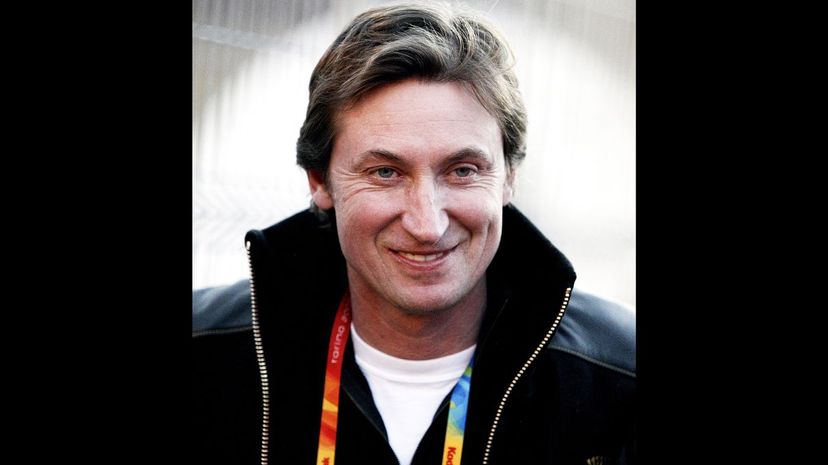
The Great One, also known as Wayne Gretzky, is known for being the best hockey player in the history of the sport. Gretzky's unique knack for strategy and predicting the actions of his opponents led to him holding the NHL record for most assists and goals ever.
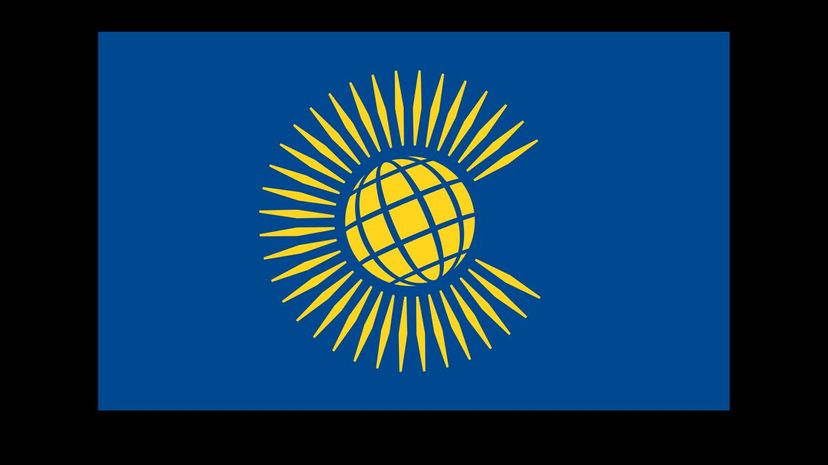
Along with another 52 countries, including Australia, South Africa and New Zealand, Canada belongs to the Commonwealth of Nations. It is a voluntary association of former British colonies and Britain itself. The Commonwealth has two main branches, the Commonwealth Secretariat and the Commonwealth Foundation.
Advertisement
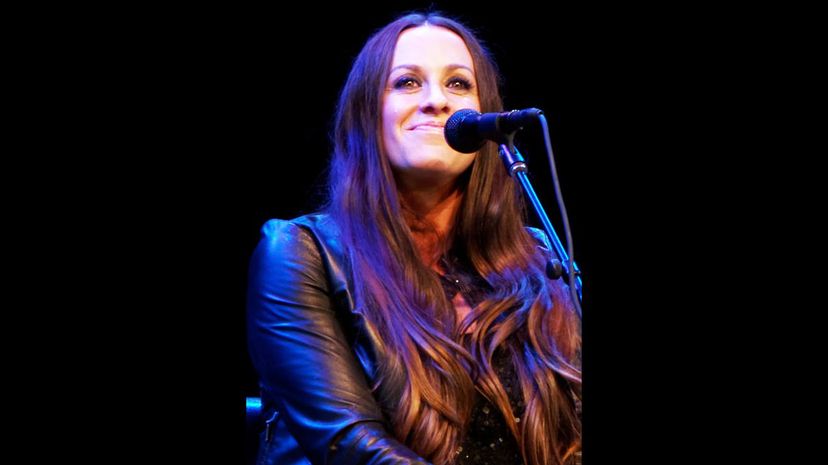
Alanis Morissette's third studio album, "Jagged Little Pill," went on to become one of the best-selling albums of all time, selling an impressive 33 million copies worldwide. "Jagged Little Pill" sold two million copies in Canada alone.
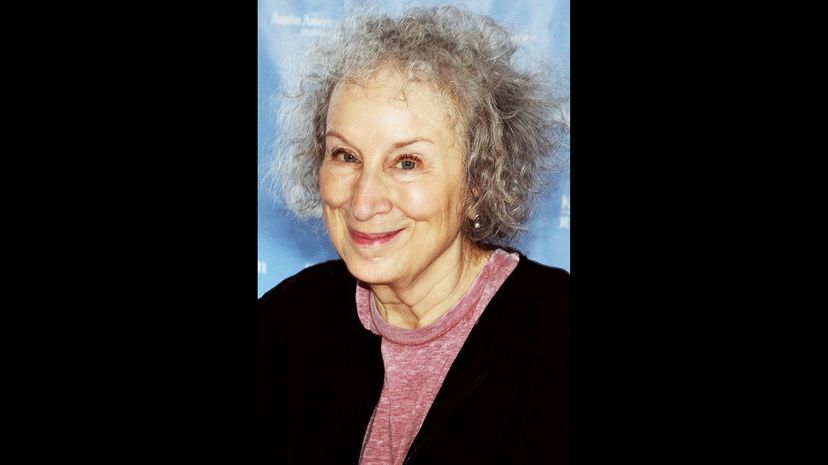
Margaret Atwood's substantial contributions to the postmodern literary era have been nothing short of incredible. In addition to her reputation as a novelist, she is a respected poet, children's author and writer of economic theories.
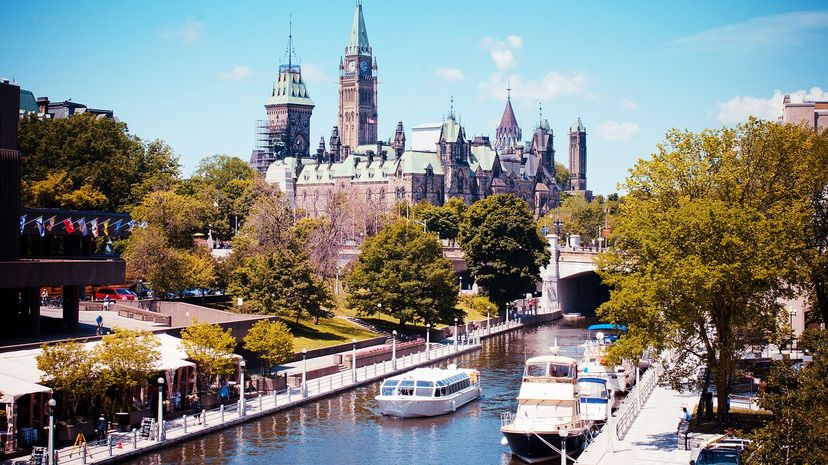
Although it isn't the largest or most populated city in Canada, Ottawa was chosen by Queen Victoria as the nation's capital for a very diplomatic reason: the city is between Toronto (English speaking) and Montreal (French speaking). This meant she would look impartial to the English and French settlements.
Advertisement
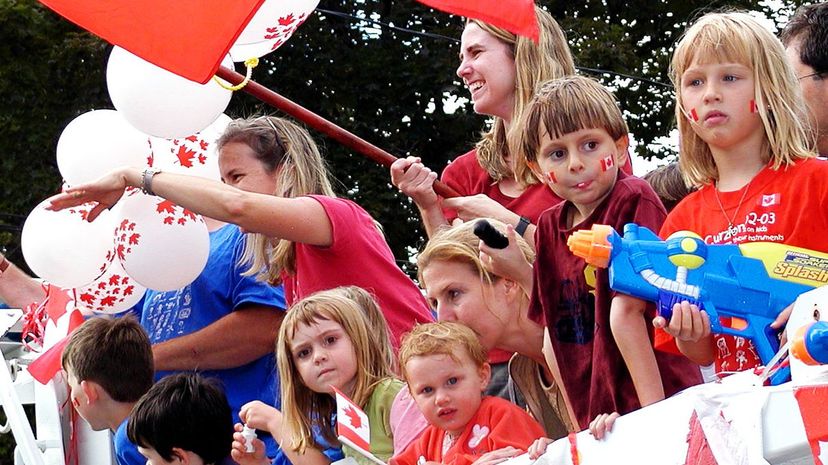
On July 1, 1867, the sovereign dominion in Canada was formed from the confederation of Canada's colonies, New Brunswick and Nova Scotia. The colonies of Canada consisted of Upper and Lower Canada, which eventually became Ontario and Quebec, respectively.
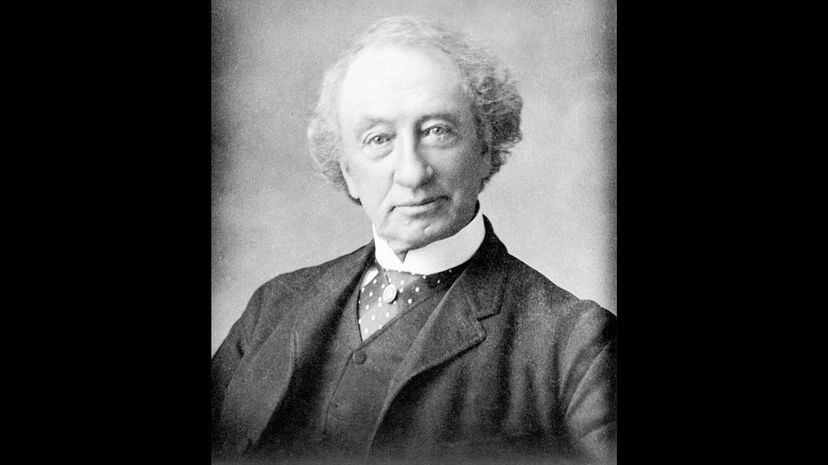
Sir John A. Macdonald was Canada's first prime minister. A member of the early Conservative Party of Canada, Macdonald held the position of prime minister for 19 nonconsecutive years - the second longest term as prime minister in the history of Canada.
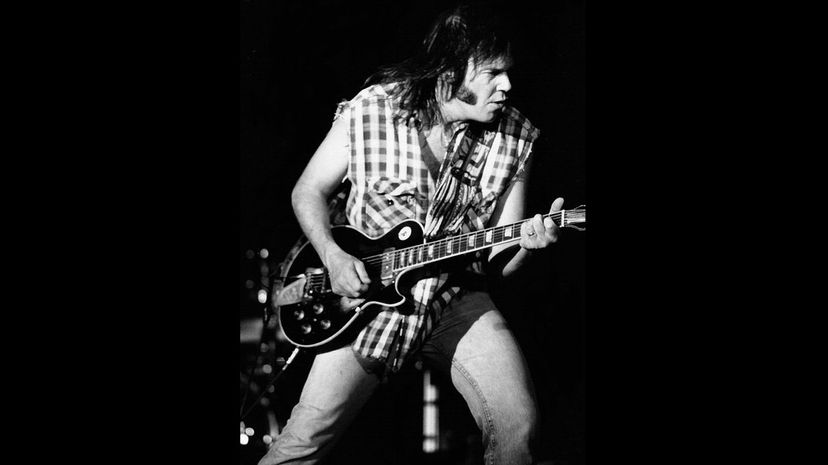
Many famous singer-songwriters have the privilege of calling Canada home, including all of the examples listed above (with the exception of Bob Dylan). Other talented Canadians include Michael Bublé, Burton Cummings, Paul Anka, Gordon Downie and Daniel Lanois.
Advertisement

Around 7.2 million consider French their first language - that's about 20% of the Canadian population as a whole. French is mainly spoken in Quebec, but it can also be heard in Ontario and New Brunswick. In fact, New Brunswick is Canada's only officially bilingual province.
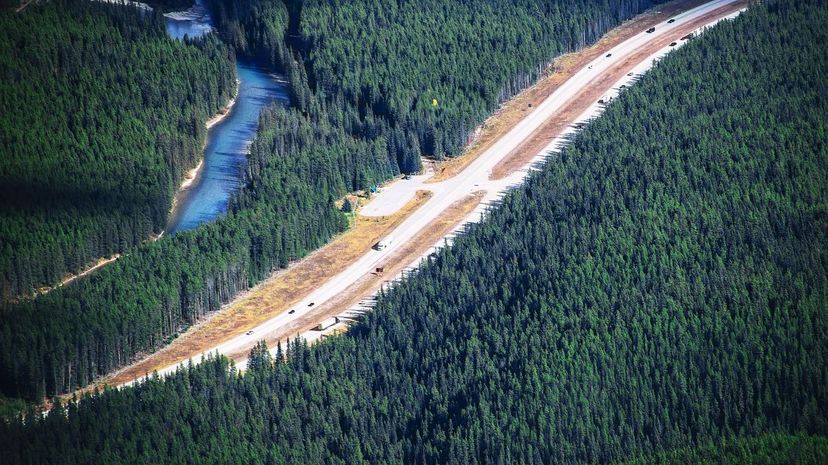
The Trans-Canada Highway will take you all the way from Victoria, British Columbia, to St. John's, Newfoundland and Labrador. Plan to spend two weeks driving along the 7,821-kilometre highway if you want to travel from one coast to the other - while seeing the beautiful sights along the way, of course.
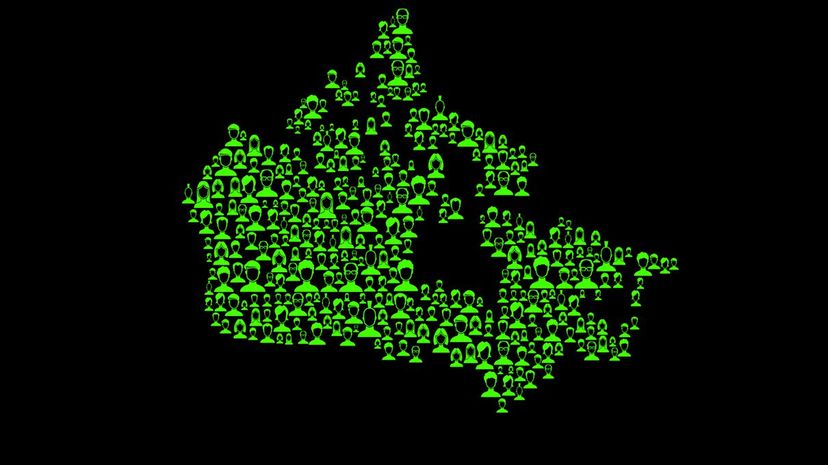
Despite the vastness of Canada in terms of its geography, around 90% of the population lives within 160 kilometres of the border. Why? Put simply, the further north you head, the colder it gets, making it a poor location for growing crops or simply living comfortably.
Advertisement
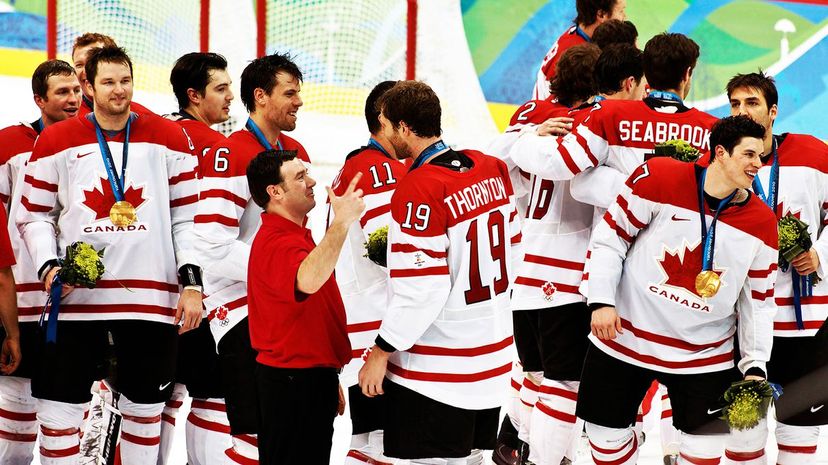
Canada has had the honour of hosting the Olympics three times: Montreal hosted the Summer Olympic Games in 1976, Calgary hosted the Winter Olympic Games in 1988, and Vancouver hosted the Winter Olympic Games in 2010.
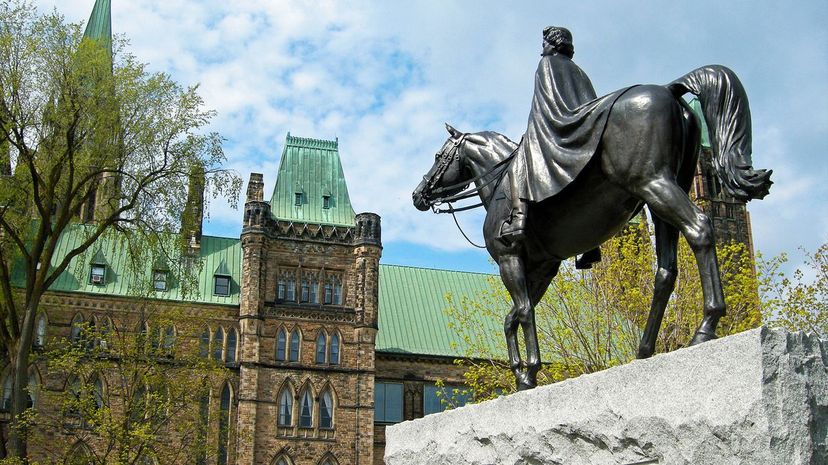
Going by their formal title, Canada's Head of State and Queen of Canada is Her Majesty Queen Elizabeth II. The Queen's role is largely symbolic, the personal embodiment of the Crown in Canada. In turn, the Crown bestows the responsibility of governing the people on the Canadian government.
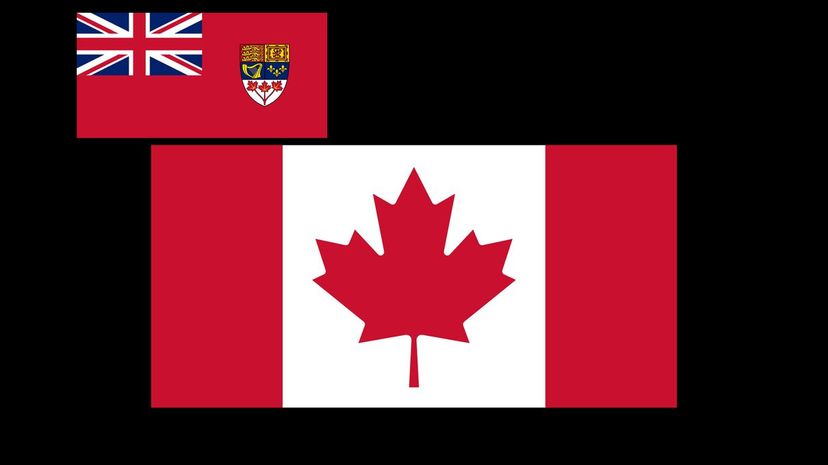
The Canadian flag, as it is known today, replaced the Canadian Red Ensign flag (upper left) in 1965. Created by George Stanley, the flag's design was partially inspired by the Royal Military College of Canada's flag. The modern flag design was chosen in a unanimous vote by 14 members of the Liberal Party and Conservative Party of Canada.
Advertisement
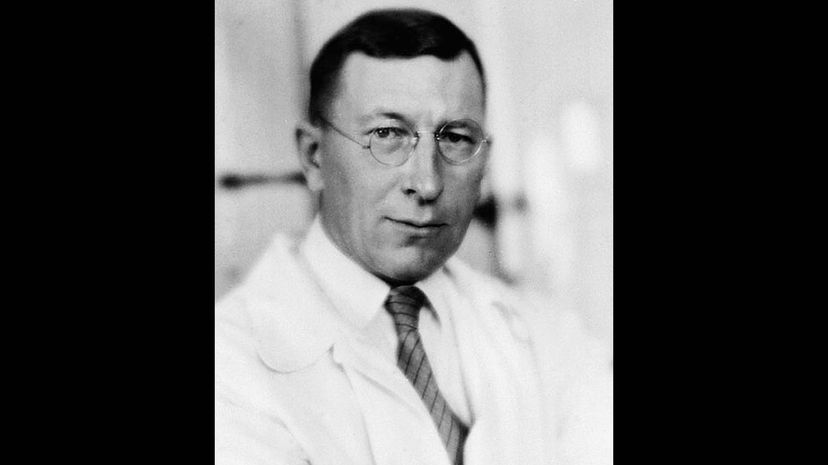
Sir Frederick Grant Banting discovered the therapeutic properties of insulin in 1920, in the city of London, Ontario. Banting House is now a museum known for its Flame of Hope, a flame that has been burning since 1989 to symbolize the eternal hope for a diabetes cure.
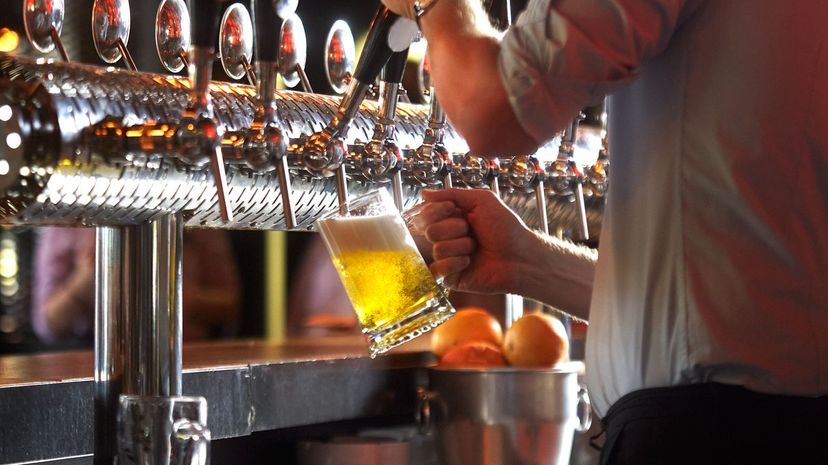
The Molson Brewery, now known as the Molson Coors Beverage Company, was founded in 1786, making it not only Canada's longest-running brewery but also North America's oldest brewery. The original brewery is located in Montreal. There are now plants in Toronto, St. John's, Moncton and Chilliwack.
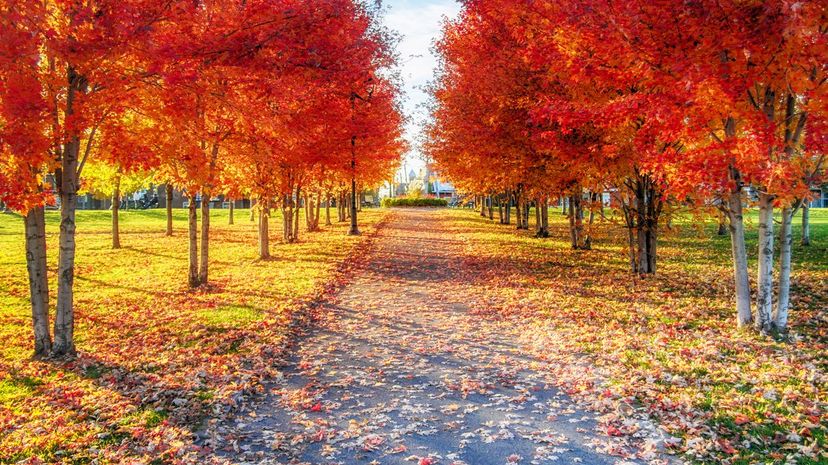
An important national symbol dating back as far as 1867, an 11-pointed maple leaf adorns the Canadian flag. Ten points represent the ten provinces; the eleventh point illustrates the fact that the provinces form one nation.
Advertisement
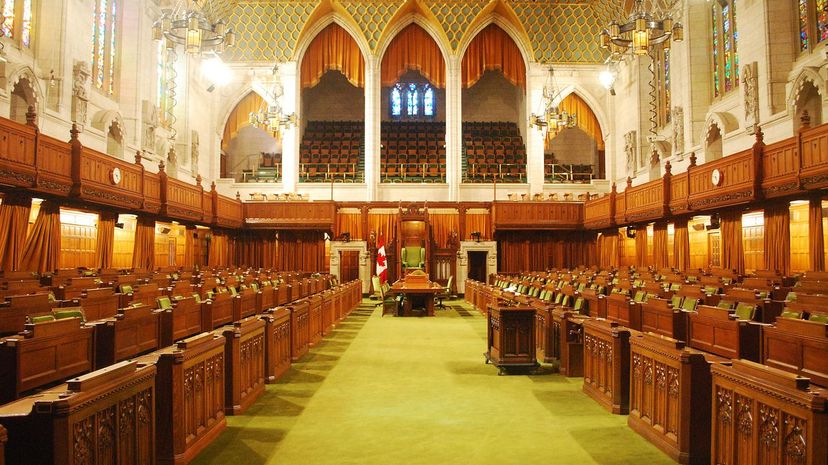
The three main political parties in Canada are the Liberal Party, the Conservative Party and the New Democratic Party (NDP). The Green Party and the Bloc Québécois are smaller federal parties which continue to influence the Canadian political landscape.
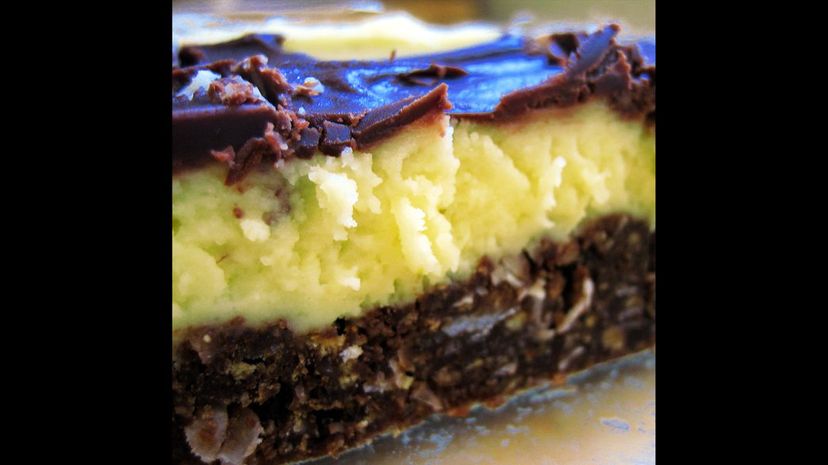
For chocolate lovers only! Thought to be invented in 1953, Nanaimo bars are a layered bar dessert made with a bottom layer of graham cracker and coconut, a middle layer of thick custard and a top layer of chocolate ganache.
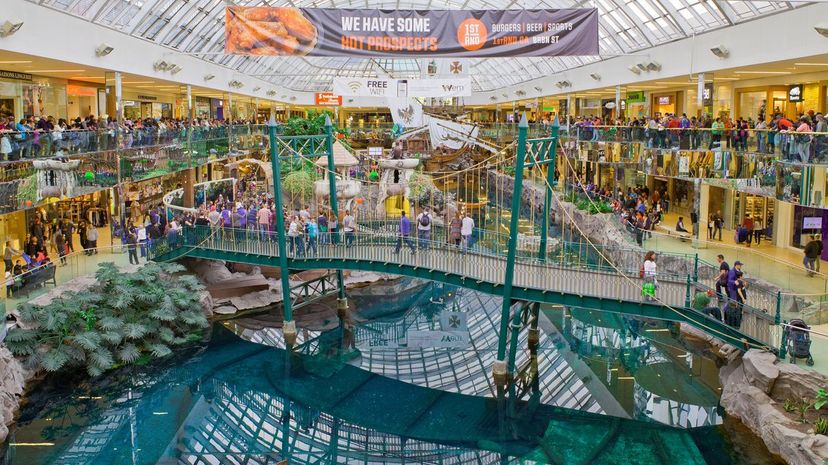
The West Edmonton Mall is actually the biggest mall in North America, not just Canada. If shoppers get bored of the mall's more than 800 stores, they can always check in to one of two hotels, sample food from over 100 restaurants, go to the World Waterpark or ride the Mindbender indoor roller coaster.
Advertisement

Launched in 1984, MuchMusic was the predictor of all things cool for Canadian youth in the '80s and '90s. Unfortunately, like MTV in the U.S., MuchMusic has removed almost all of its music programming and now mainly broadcasts reality shows and movies.
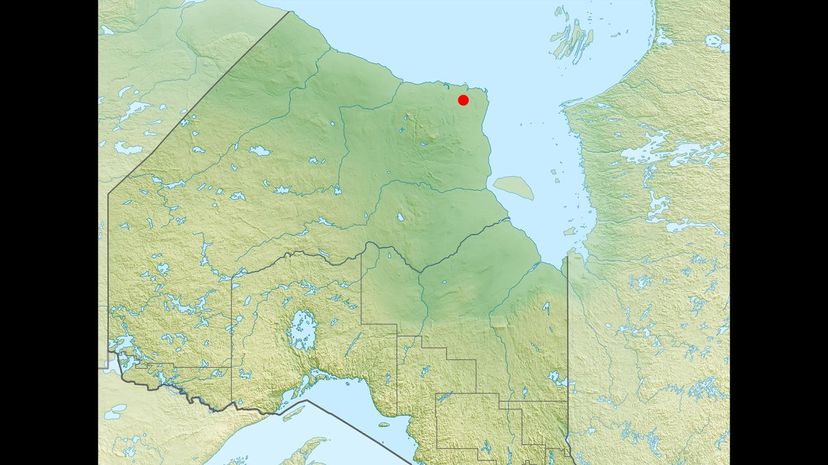
Situated in the far north of Ontario by Hudson Bay, Polar Bear Park covers a whopping 2,355,200 hectares, or 23,552 square kilometres. Despite its size, Polar Bear Park is primarily a conservation area and can only be accessed by air. Special permission must be given in order to visit the park.
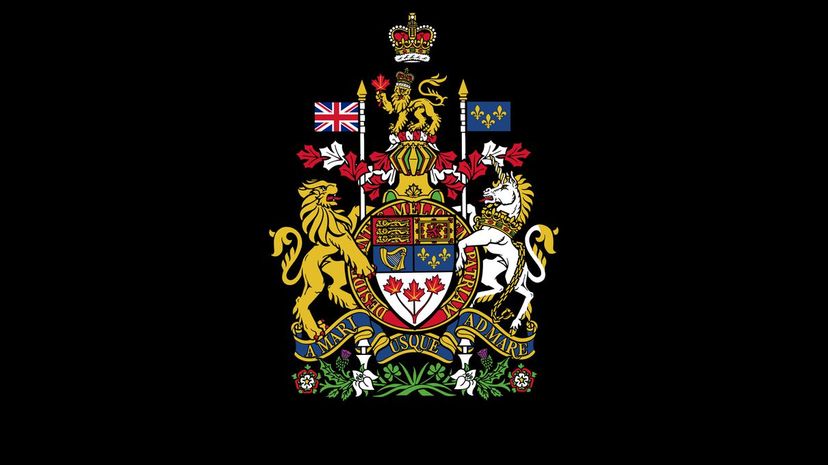
Canada's official motto wasn't applied to the Royal Coat of Arms until 1921. Although the motto had been unofficially in use since the early 1900s, it wasn't until after World War I that King George V and the federal Cabinet authorized its inclusion on Canada's coat of arms.
Advertisement
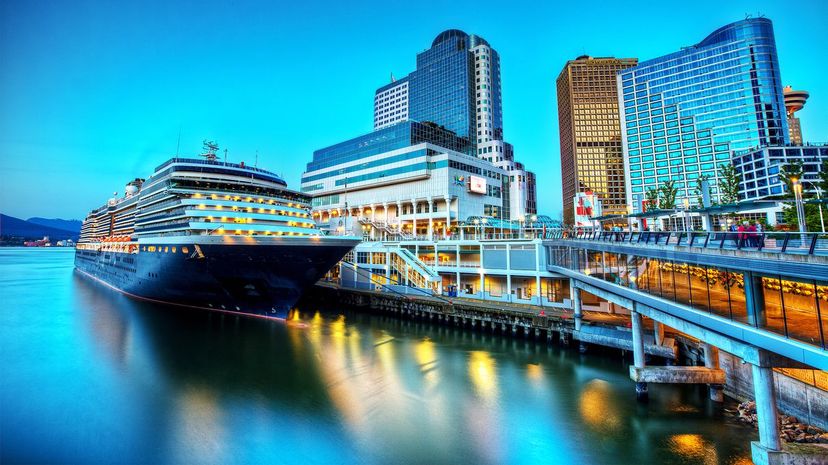
Thanks to Canada's massive geographic sprawl, it sits between the Pacific Ocean to the west, the Arctic Ocean to the north and the Atlantic ocean to the east - hence the official motto, "from sea to sea."
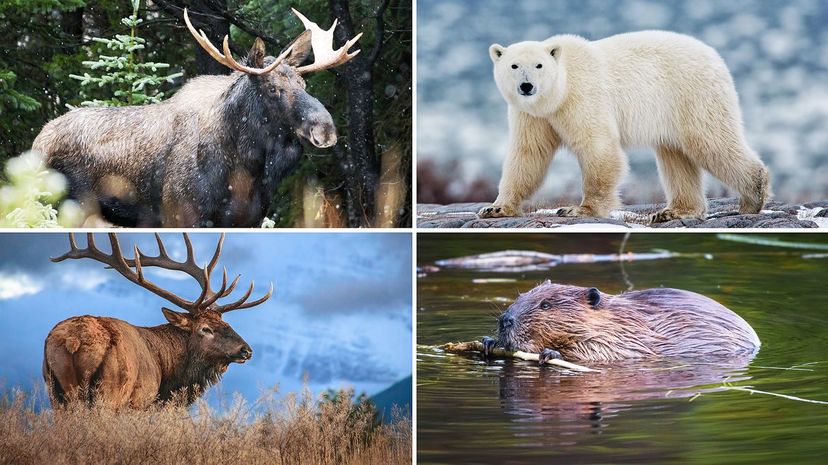
The beaver was chosen as Canada's national animal, due to the economic and historical importance of the beaver fur pelt trade. It was relied on so heavily that by the middle of the 19th century, beavers were nearly hunted to extinction. However, thanks to conservation efforts, beavers are once again plentiful in Canada.
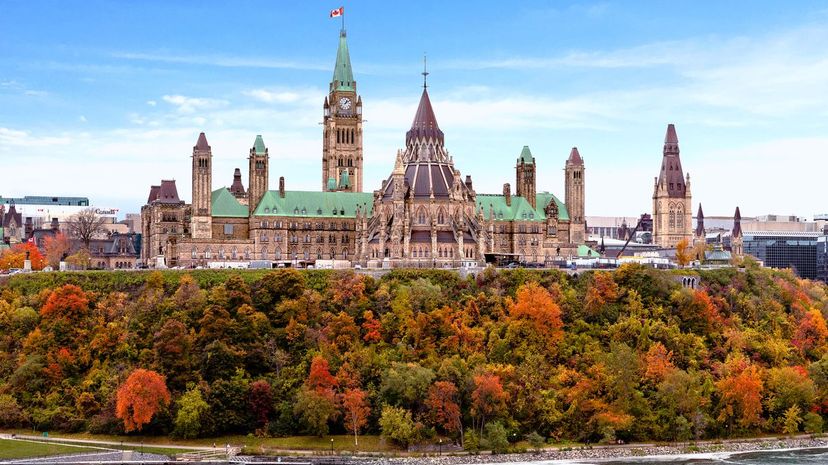
Also known as The Hill, Parliament Hill is located in the nation's capital, Ottawa, Ontario. The three main Parliament Buildings are the East, West and Centre Blocks. The Centre Block houses the Senate and House of Commons chambers, while the other buildings are generally used for offices and administrative purposes.
Advertisement
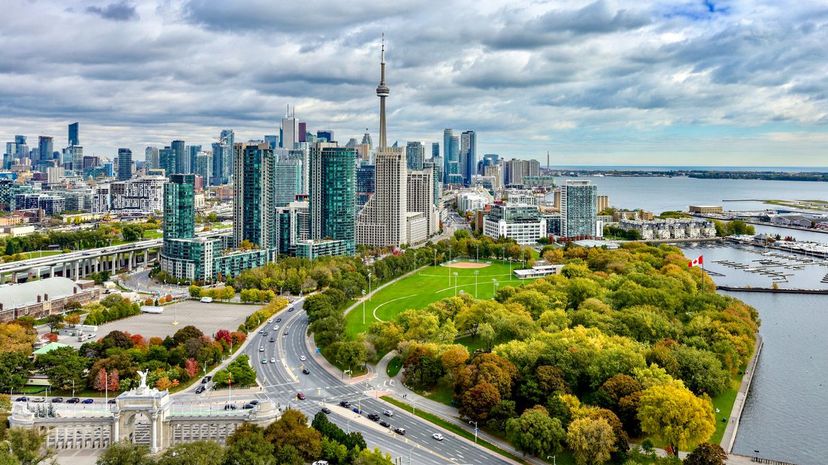
Toronto, the capital of Ontario, is the most populous city in Canada, with approximately 5 million citizens in the greater metropolitan area. The city of Toronto is Canada's main hub for finance (Bay Street), entertainment (Toronto International Film Festival) and multiculturalism.
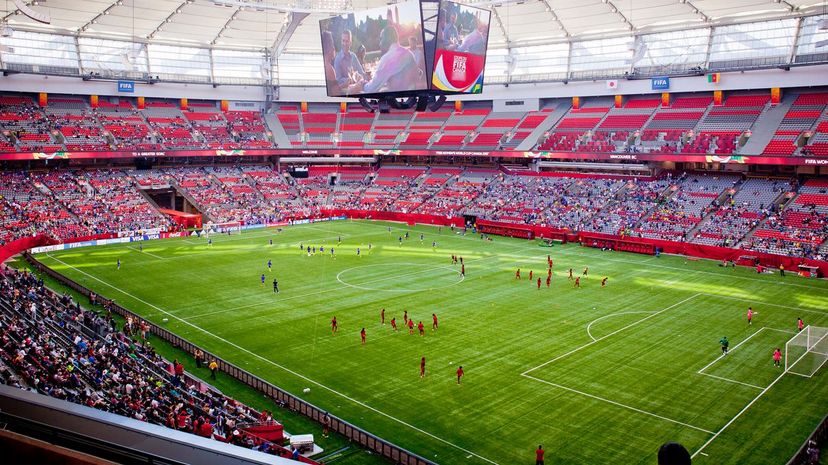
In 2015, six Canadian cities were chosen to host the 2015 FIFA Women's World Cup: Edmonton; Winnipeg; Vancouver; Ottawa; Montreal and Moncton, New Brunswick. The players not only had to fly long distances between matches, but they also had to cross up to five time zones. Talk about jet lag!